Upgrading the Berlin Court Tunnel is the key to improved bike-ped transportation in Middletown’s North End. At the moment, the tunnel is a rather forlorn and unimproved underpass next to the railroad tracks under Newfield Street, near the Water & Sewer Department on the east side and Veterans Park on the west side. But it’s the safest and easiest way for pedestrians and bicyclists to cross Newfield Street, and it is heavily used.
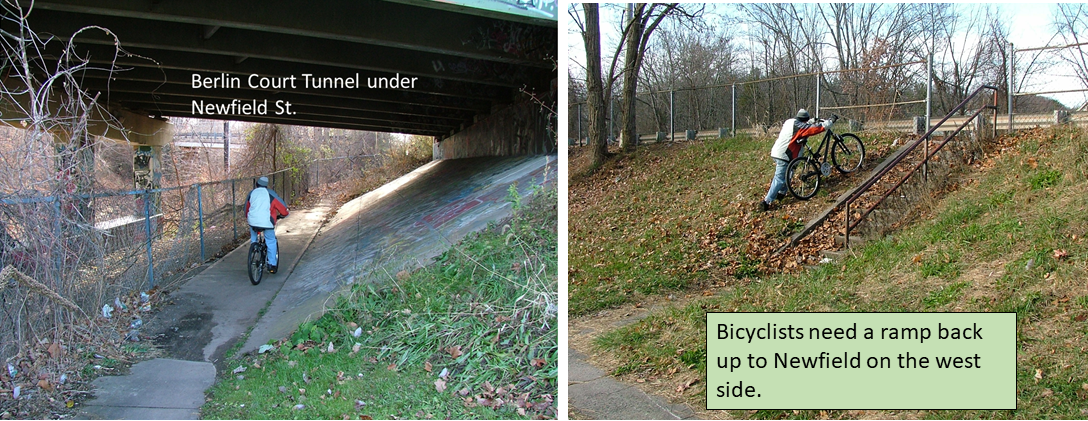
Another improvement for pedestrians and bicyclists would be a pedestrian and bicyclist bridge from the end of Jackson St. across the Coginchaug River into Veterans Park. The old stone bridge abutments remain from a bridge at this location many decades ago. The Jonah Center began a conversation with the City in 2013 about these potential bike-ped infrastructure possibilities.
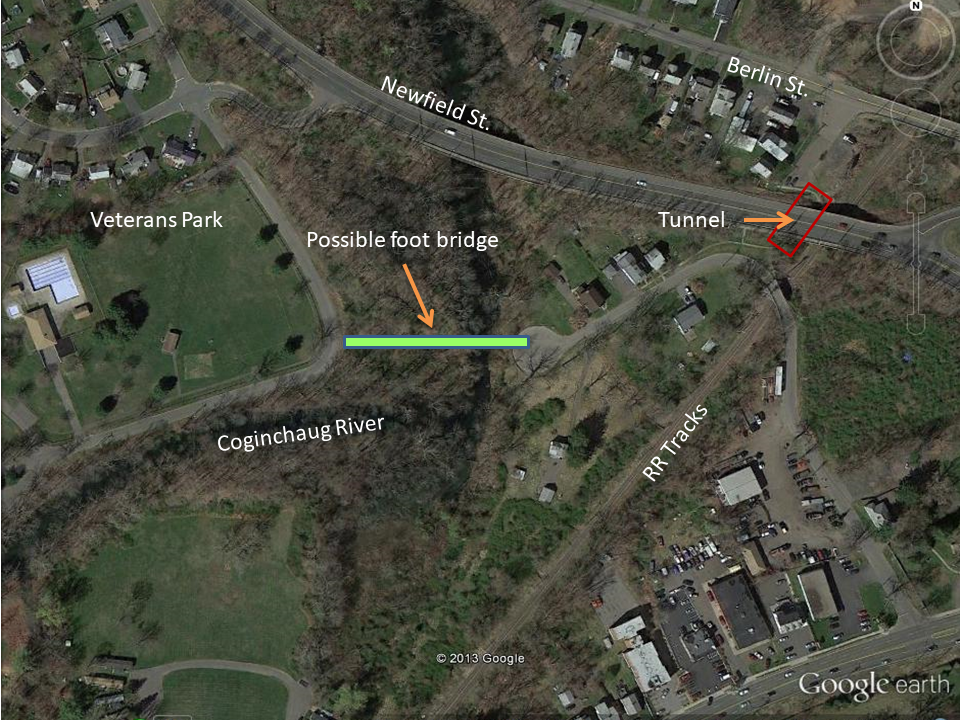
The city has now decided to renovate the Vets Park pool, construct a splashpad, and begin design and construction of the Newfield Corridor Trail, which brings into clear view the relationship these projects have with each other. Director of Public Works Bill Russo described the tunnel and bridge access route together as “an important part of the puzzle and just as much a top priority as the pool and splashpad. Those [facilities] are going to be a magnet for kids and families. I don’t want anyone from the North End having to cross Newfield Street in the middle of that high-speed traffic. Plus, this will let people walk or bike to the drugstores and other businesses around the intersection of Washington and West Streets without having to get on Route 66.”
These are exciting plans, and we are delighted about Director Russo’s enthusiasm for them. But they are still plans, and the public needs to express support for them so that they become reality over the next few years. The map below shows how many potential routes and destinations would be served by these improvements.
(Below: map showing overview & with planned or possible trail routes.)

Overview showing how the Berlin Count tunnel is the key link for bike-ped traffic crossing Newfield St.
Citizens may express their support for these key bike-ped improvements by emailing Director Russo at william.russo@middletownct.gov , members of the Common Council at council@middletownct.gov, and Mayor Ben Florsheim at mayor@middletownct.gov.
Additional details and information: Making the Berlin Court Tunnel more useful and appealing involves improved approaches from both sides, a sturdier fence or other barrier inside the tunnel to separate it from the railroad tracks, and a gradual ramp to replace the steps on the west side. Director Russo envisions the new Jackson St. bridge as part of a 10-foot-wide, multi-use trail crossing the river to Walnut Grove Road in Veterans Park, recrossing the river via the footbridge behind Palmer Field, and leading to the intersection of Washington and West Streets.
Funding for engineering and design of both the tunnel and bridge projects would most likely come from the 2015 Parks Bond, but construction costs could be supplemented through the road bond portion of the 21st Century Infrastructure Development Bond that will be on the Nov. 3 ballot in Middletown.















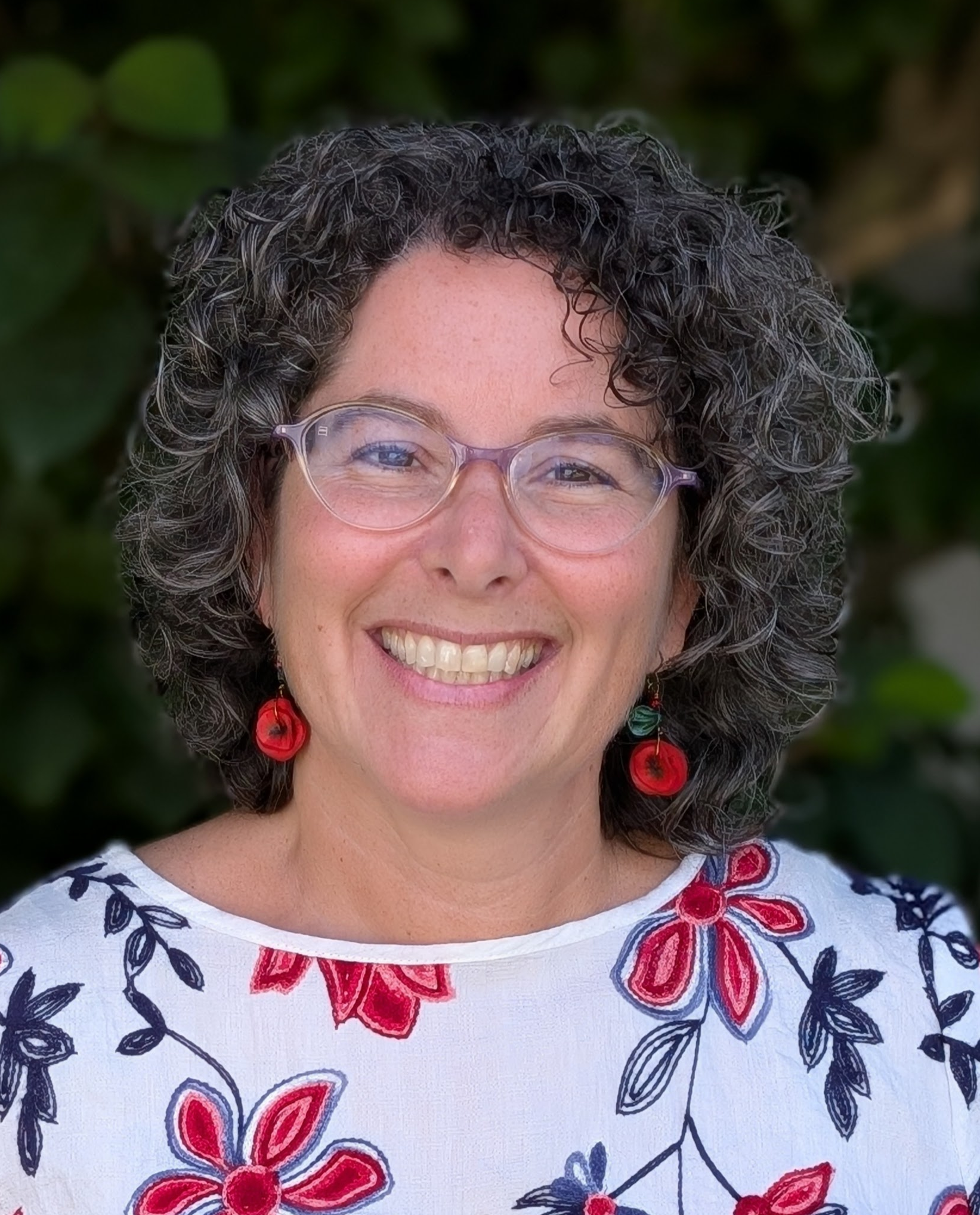 By Krishna Winston
By Krishna Winston

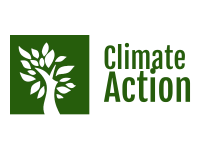 The Transportation Climate Initiative (TCI) is a carefully constructed regional plan to reduce carbon emissions from the transportation sector. If implemented, TCI will create allowances for the wholesale distribution of oil and gas, place a fee upon those allowances, and invest the resulting revenue in clean public transportation, electric vehicle infrastructure, and non-motorized transportation options such as bike routes. Over time, the allowances will decline and the cost will rise, to ensure lower emissions from transportation.
The Transportation Climate Initiative (TCI) is a carefully constructed regional plan to reduce carbon emissions from the transportation sector. If implemented, TCI will create allowances for the wholesale distribution of oil and gas, place a fee upon those allowances, and invest the resulting revenue in clean public transportation, electric vehicle infrastructure, and non-motorized transportation options such as bike routes. Over time, the allowances will decline and the cost will rise, to ensure lower emissions from transportation.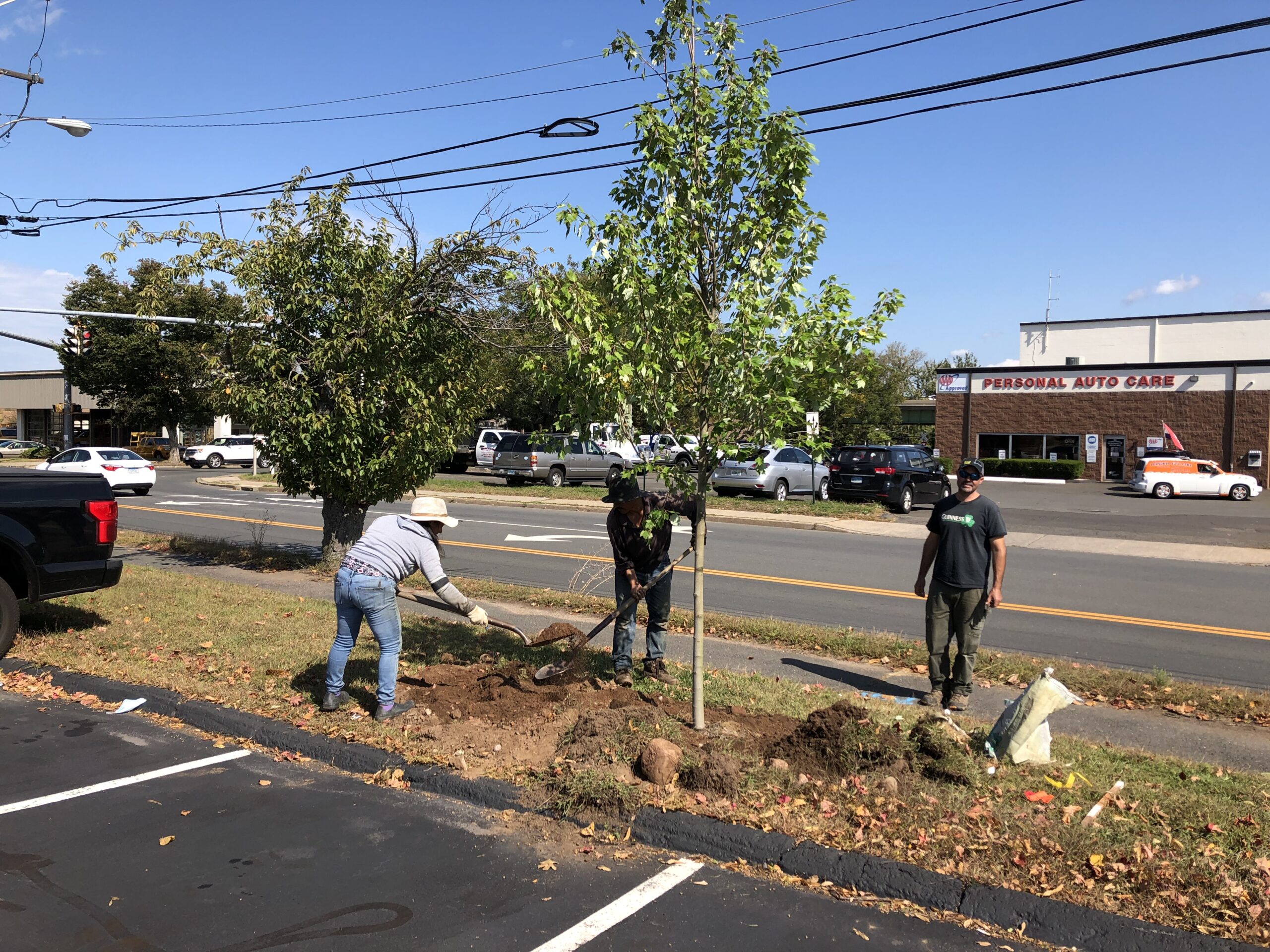 Thanks to the generous donors to our Replace Our Trees Campaign, the Jonah Center is planting 22 street trees around the Middlesex YMCA (red maples, dogwoods, hawthorns and lindens), and along William Street and Church Street, north and south of the Traverse Square apartments (red maples, ginkgoes, and ornamental cherries), where the Middletown Housing Authority is contributing to the cost of the new plantings.
Thanks to the generous donors to our Replace Our Trees Campaign, the Jonah Center is planting 22 street trees around the Middlesex YMCA (red maples, dogwoods, hawthorns and lindens), and along William Street and Church Street, north and south of the Traverse Square apartments (red maples, ginkgoes, and ornamental cherries), where the Middletown Housing Authority is contributing to the cost of the new plantings.

